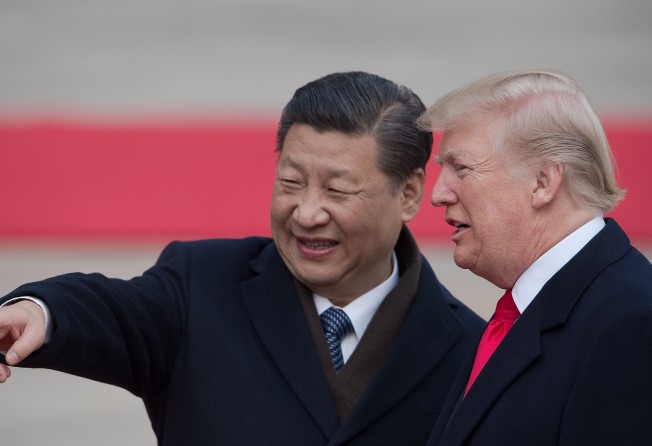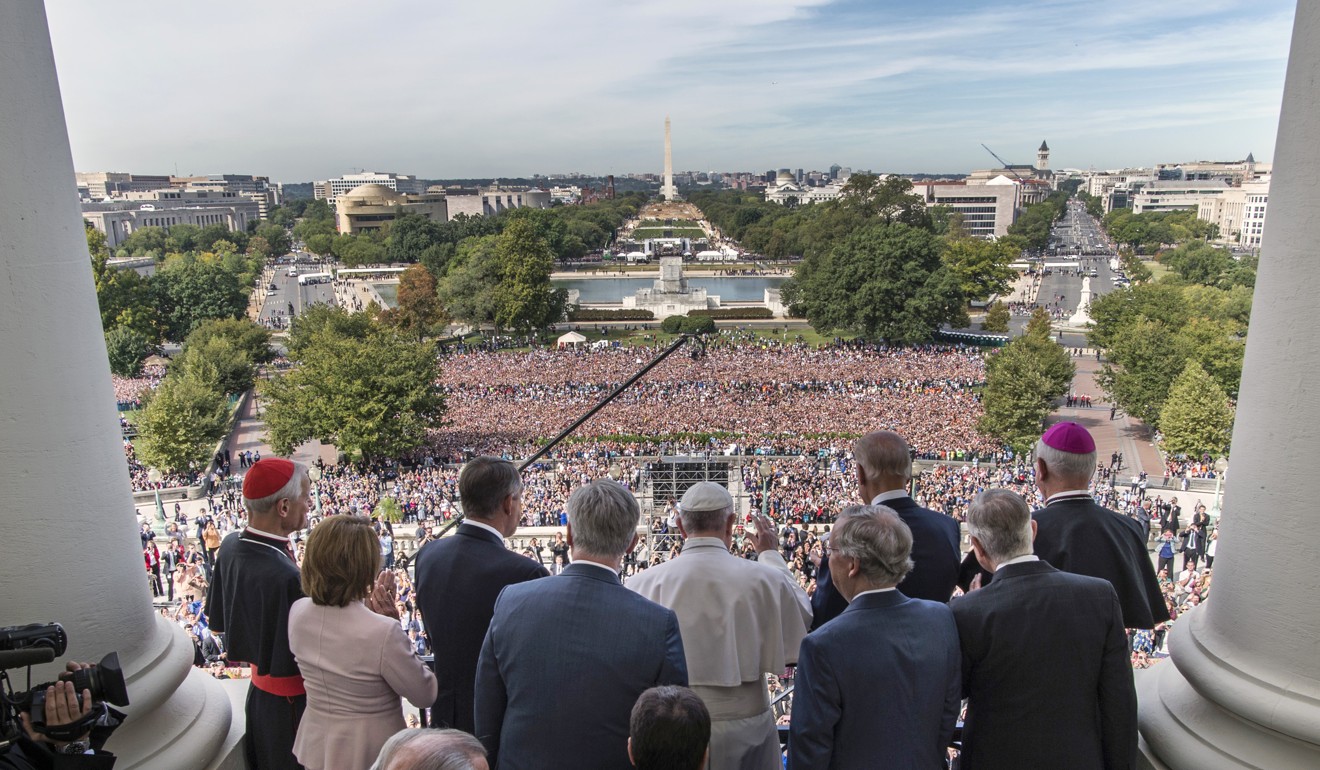After Emmanuel Macron’s speech to US Congress, why not have Xi Jinping next?
Chi Wang considers all the factors that have led to foreign leaders being invited to address a joint session of US Congress, and asks why, considering the paramount importance of Sino-US ties, the Chinese president shouldn’t be extended the honour

Last Wednesday, French President Emmanuel Macron delivered a speech in front of a joint meeting of US Congress. He spoke in fluent English, fully engaged the crowd of politicians, and also managed to make pointed policy remarks. Overall, his speech can be counted as a great success for him individually and for France’s overall diplomatic standing.
As I watched Macron receive multiple standing ovations in his widely lauded and reported speech, however, I began to think more broadly about the role of foreign presidential speeches in front of Congress. After all, not all foreign leaders are given this platform. Under president Barack Obama, for example, 17 foreign heads of state received state dinners at the White House (including the five Nordic states at the same dinner), though only 13 spoke before Congress. Some of these, like Pope Francis, spoke to Congress but did not have a state dinner.
The dinners and speeches, one representing the executive and the other the legislative branch, have their own distinct purpose and meaning. In my nearly seven decades of observing the dinners and listening to the speeches, the difference I have noticed between them is that state dinners are a sign of goodwill between the White House and the visiting leader; they are a diplomatic formality symbolising American hospitality and respect for the visiting dignitary. The speeches, on the other hand, extend a different type of respect. They indicate that the Congress and, by extension, the American people hold that leader in high esteem and are interested in hearing what they have to say.
In other words, state dinners are an internationally recognised diplomatic practice with set guidelines and etiquette. Speaking before Congress, on the other hand, is a much more uniquely American way to show our regard for a leader. What does it say, then, that a country as large and influential as China has never had one of its paramount leaders address Congress?
In looking at which countries have addressed Congress, there are some patterns. US neighbours, Canada and Mexico, and close allies like the United Kingdom are obvious candidates for speeches. Israel, too, has unsurprisingly been granted this honour on multiple occasions. Beyond the clear choices, however, how are the speakers decided? And, more to the point, why are certain countries excluded?
From Asia, for example, India’s Prime Minister Narendra Modi spoke in 2016, Japan’s Prime Minister Shinzo Abe in 2015 and South Korea’s President Park Geun-hye in 2013. If you look further back, Singapore (1985), the Philippines (1966), Thailand (1960), the Republic of Vietnam (1957) and Indonesia (1956) can all be added to the list. Some countries have had leaders speak multiple times before Congress, like India (5) and South Korea (6); others have only spoken once, and still others, like China, have never spoken before Congress.
One might guess that it is the intended content of the speech that might determine Congress’ invitation. Abe, for instance, was the first Japanese head of state to speak before Congress when he delivered a speech expressing regret for Japan’s actions during the second world war. Perhaps Congress does not want to be caught off guard or to provide a platform for remarks they do not agree with. That argument, however, does not seem to hold. Israeli Prime Minister Benjamin Netanyahu is known for his controversial policy proposals, yet he has spoken before Congress on three separate occasions. And, most recently, Macron clearly critiqued President Donald Trump and his policies during his remarks.
Of course, even while criticising the US, Macron highlighted the importance of the US to the global community and the longevity of the US-France friendship. There is no indication, however, that a speech from a Chinese leader would not follow a similar theme. Speeches by Chinese leaders at other US venues have been positive and well-received. Furthermore, the very same alliance and shared sacrifices from the second world war mentioned in Macron’s speech also apply to China, whose soldiers fought side by side with Americans in the Pacific theatre.
I wonder, if President Xi Jinping spoke fluent English like Macron or some of the Asian leaders who have spoken before Congress, would he have been extended an invitation? Even as a strong US ally, the Republic of China’s Chiang Kai-shek never spoke before Congress, but his American-educated wife was welcomed with enthusiasm and spoke in front of the House of Representatives (although still not in a joint meeting with the Senate). Or perhaps being an authoritarian leader is the major roadblock to receiving an invitation. Kings and queens have spoken before Congress, but they were mostly from countries with constitutional monarchies.

Certainly, there is no way to know for sure why some countries are repeatedly overlooked by Congress, as these decisions span decades and multiple administrations. But, still, it is worth considering and paying attention to. Whatever the reason, it is a major oversight by Congress to freeze out leaders from such a large and influential country as China. The US-China relationship is widely considered the most important bilateral relationship in the world. Why, then, does the US Congress seem to want nothing to do with it? China’s leaders, too, should keep this in mind for their next state visit. Maybe they can finally manage to get an invitation from Congress to speak. As a first for China, it would definitely be a diplomatic coup for Xi. On the other hand, Xi might not even be interested in addressing the US Congress.
Chi Wang, a former head of the Chinese section of the US Library of Congress and former university librarian at the Chinese University of Hong Kong, is president of the US-China Policy Foundation